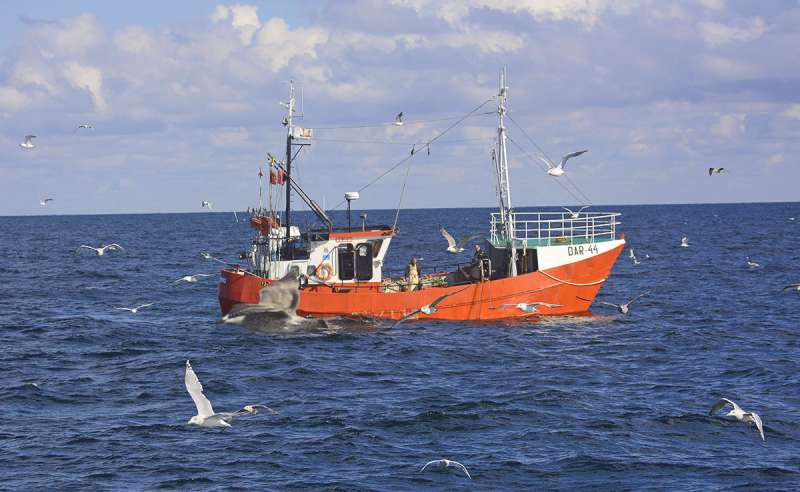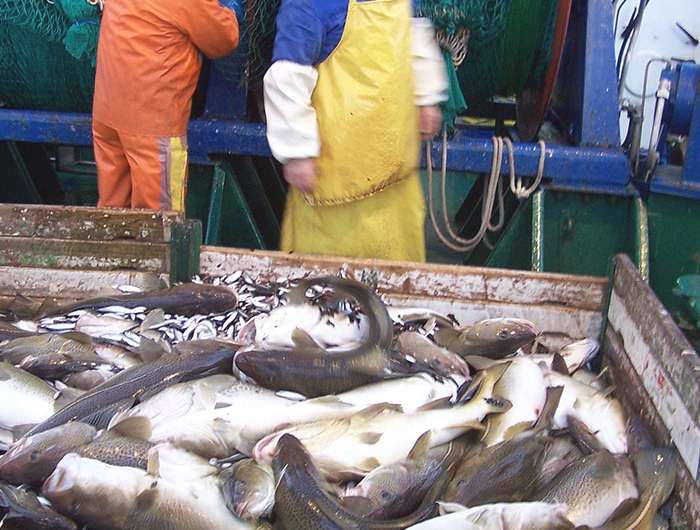Holistic management makes ecosystems healthier, people wealthier

Economists agree that natural ecosystems store large quantities of wealth, but the challenge of measuring that wealth has prevented it from being included in typical accounting systems.
A new Yale-led study tackles this challenge by recognizing the value of "natural capital" assets—such as groundwater or fish species—and connecting them with holistic ecosystem management to calculate asset values for the interacting parts of an ecosystem.
Using as a case study the Baltic Sea fishery ecosystem, the researchers project that the use of a holistic management scheme, which tracks multiple connected species, will increase the stored wealth of the entire system over five decades. Management of a single species stock, meanwhile, will generally produce declining wealth.
In this case, researchers find that the interaction of three commercially important Baltic fish species—cod, herring, and sprat—has a critical impact on the value of the whole system, according to the results published in the Proceedings of the National Academy of Sciences. Specifically, they conclude that the prey species (herring and sprat) have greater value than expected, based on market value, due to their role in helping produce their predator, cod.
These results are due to the interdependence of the species and the limits to substitution within the ecosystem community, said Eli Fenichel, a professor at the Yale School of Forestry & Environmental Studies (F&ES) and senior author of the study. In other words, the evaluation of the wealth of an ecosystem—and its subsequent management—is best viewed in terms of how different species interact.

"We found that being part of an ecosystem has impacts on the natural capital asset value, or the price of natural capital," said Fenichel. "Even if the cod stock didn't change at all, its value increased if you had more herring or sprat."
"Overall we estimate that the value stored in this fishery was just over 1.2 billion euros under the old single-species management," he said. "That value goes up to just under 1.5 billion euros under a new ecosystem-based management. That's a pretty substantial bump."
While it might seem counterintuitive that increased stocks of one species would drive up the capital value of another species, the predators and prey within an ecosystem have a complementary relationship. It's sort of like hot dogs, Fenichel said. The more hot dogs you have, he said, the more valuable hot dog buns become.
Such a process also provides a badly need "headline" indicators to evaluate the performance of ecosystem-based management, the authors write.
"This paper shows that ecosystems are best thought of as portfolios of natural capital assets and the wealth held in the ecosystem provides an attractive headline index for ecosystem-based management," said Seong Do Yun, a postdoctoral fellow at F&ES and lead author of the paper. "Making sure the 'principle balance' of wealth is protect is a common investment goal; the wealth index we develop extends this idea to natural resources and provides an intuitive way think about sustainability - protecting the principle balance of all wealth including that stored in the environment."
For the study the authors utilized an adapted finance capital model developed by Fenichel, Joshua Abbott, a professor at Arizona State University, and others in recent years to evaluate the value of other natural capital stocks, including groundwater on the Kansas High Plains and reef fish in the Gulf of Mexico. In addition, they used a software package, created by Yun, that computes natural capital asset prices.
More information: Seong Do Yun et al, Ecosystem-based management and the wealth of ecosystems, Proceedings of the National Academy of Sciences (2017). DOI: 10.1073/pnas.1617666114
Journal information: Proceedings of the National Academy of Sciences
Provided by Yale University




















